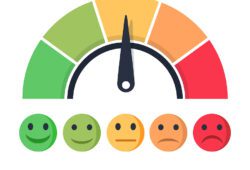Artificial intelligence and robotics are two technologies that are rapidly changing the world as we know it. Together, these technologies have the potential to revolutionize the way we do business and live our lives. But they also carry some significant risks that must be carefully considered.
According to Statista, in 2022, revenues from the global artificial intelligence market were expected to reach 433 billion U.S. dollars. The global AI market is forecast to see rapid growth in the coming years, reaching more than half a trillion U.S. dollars by 2023. In 2019, IBM held the largest market share with 8.8 percent, while Microsoft claimed the second largest market share with 5.6 percent.
As artificial intelligence and robotics evolve and become integrated into more aspects of our lives, however, we must be aware of the potential risks. Some of these risks include the loss of control over AI systems, the potential for harm to humans or the environment, unequal distribution of benefits, and ethical and moral dilemmas.
In the context of business and the marketing industry, the merging of AI and robotics can also have significant implications. For example, there may be changes in consumer behavior and the need for new marketing strategies. Additionally, the ethical considerations surrounding AI and robotics use in marketing, such as data privacy and fairness in targeting, may be relevant.
4 Risks of AI:
- Job Displacement: One of the biggest concerns associated with AI is its potential to displace large numbers of workers. As AI systems become more capable of performing tasks traditionally performed by humans, there is a risk that many jobs will become automated. While this may lead to increased efficiency and productivity, it could also lead to widespread unemployment, as workers are replaced by machines.
- Bias and Discrimination: Another risk associated with AI is the potential for bias and discrimination. AI systems rely on large amounts of data to make decisions and predictions, and if this data is biased, the AI system may make decisions that unfairly impact certain groups of people. For example, if an AI system used to make hiring decisions is trained on data that contains gender or racial biases, it may make decisions that unfairly disadvantage certain groups of people.
- Lack of Accountability: AI systems are often designed to operate autonomously, without direct human oversight. This lack of accountability can make it difficult to determine who is responsible when things go wrong, such as when an AI system causes harm or violates privacy. This lack of accountability also makes it difficult to hold AI systems accountable for their decisions and actions.
- Potential for Misuse: Another risk associated with AI is the potential for misuse. AI systems can be used for malicious purposes, such as cyberattacks, or for purposes that violate privacy and civil liberties. For example, AI systems can be used to monitor and track individuals, or to manipulate public opinion through fake news and propaganda.
3 Negative Effects of AI:
- Decreased Privacy and Security: One of the biggest negative effects of AI is the potential for decreased privacy and security. As AI systems collect and process large amounts of data about individuals, there is a risk that this data could be used for malicious purposes, such as identity theft or cyberattacks. Additionally, AI systems can be vulnerable to hacking and other forms of cybercrime, which can put personal and sensitive information at risk.
- Decreased Human Creativity and Critical Thinking: Another negative effect of AI is the potential for decreased human creativity and critical thinking. As AI systems become more capable of performing tasks traditionally performed by humans, there is a risk that people will become less engaged in creative and critical thinking activities. This could lead to a decline in innovation and problem-solving ability, as well as a decline in overall well-being and satisfaction.
- The Widening Gap between the Rich and the Poor: A third negative effect of AI is the potential for the widening gap between the rich and the poor. As AI systems automate many jobs traditionally performed by humans, there is a risk that the benefits of this automation will accrue primarily to the wealthy, while the majority of people are left behind. This could lead to increased income inequality and decreased social mobility, which could have negative consequences for society as a whole.
The ethical and social implications of AI are complex and far-reaching. AI systems are capable of making decisions and predictions that can have significant impacts on individuals, communities, and society as a whole. As such, it’s important to consider the ethical and social implications of AI and to develop guidelines and regulations that ensure that this technology is used for the benefit of society as a whole.










